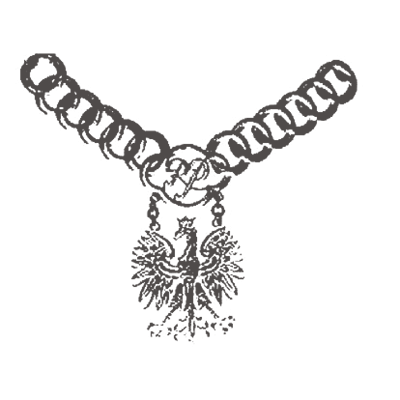Adam Studziński
How do dishonest debtors hide their assets and income?
30.06.2022
detective’s perspective, creditor protection
Interview with Tomasz Mostowski, a licensed private investigator from the Legalplus detective agency

How can a private investigator help in a case against a dishonest debtor?
30.06.2022
detective’s perspective, creditor protection
Interview with Tomasz Mostowski, a licensed private investigator from the Legalplus detective agency

When a debtor rejects an inheritance to the detriment of a creditor
30.06.2022
creditor protection, creditors in inheritance proceedings
Seeking to evade their obligations, debtors may take various actions in connection with their possible right to inheritance from a third party. A debtor might attempt to conceal the elements or value of the estate. They might even reject the inheritance before the court or a notary, but the creditor is not defenceless in that situation. The purpose of this article is to introduce readers to a legal instrument protecting the creditors’ interests in a situation where the debtor rejects an inheritance.

When a debtor dies or inherits, what can a creditor do to determine what is in the estate?
30.06.2022
creditors in inheritance proceedings, creditor protection
One problem that can affect a creditor is the debtor’s death. Then a creditor seeking to recover a claim must in some way determine as soon as possible the value of the estate left by the deceased debtor, whether the claim is included in the estate, and who, from the group of potential heirs, and to what extent, will be responsible for the debtor’s obligations.

Which court should hear a fraudulent transfer case against a third party or a case seeking to protect real performance of a contract?
30.06.2022
Actio pauliana, protection of contracts, creditor protection
To challenge a transaction by a debtor with a third party injurious to a creditor (fraudulent transfer action) or a contract by the debtor with a third party (action under Civil Code Art. 59), it is essential to file the properly drafted statement of claim with the court with proper venue geographically and for the subject matter. How to determine which court is proper to hear the case?

When the other party seeks to prevent performance of a contract
30.06.2022
protection of contracts, creditor protection
After conclusion of a preliminary agreement for sale or long-term tenancy of real estate, the owner refuses to conclude the final agreement, instead selling the property to another buyer or delivering the property to another tenant. Or imagine a contract for future delivery of rare, hard-to-find components essential for manufacturing, where the seller then enters into another contract promising to supply a direct competitor, preventing the supply to the original buyer. In such situations, does the original buyer have a claim other than for monetary damages for breach of contract, or can it enforce performance of the original contract?

Fraudulent transfer claim against a third party: A basic instrument for protecting creditors against debtors’ insolvency
30.06.2022
Actio pauliana, creditor protection
The deepening crisis of debtor honesty means that today, more than ever, creditors face the risk that debtors will not only fail to pay their debts voluntarily, but will hinder enforcement by transferring assets to third parties. In such situations, a fraudulent transfer claim against the third party (sometimes called a “Pauline action”), known and applied in legal systems of many countries around the world, comes to the creditor’s rescue.

Persons handling a dishonest debtor’s affairs may be liable to creditors
02.06.2022
damages for creditors, criminal law in creditor protection, creditor protection
The Supreme Court of Poland regards protection of the creditor’s financial interests as the main purpose of punishing the debtor (and his supporters, if any) for behaviour preventing or diminishing the satisfaction of creditors. Therefore, persons handling the debtor’s affairs can be jointly and severally liable to the creditor.

Seizure of debtor’s shares in a company: Is it enough?
19.05.2022
interim relief and execution, creditor protection
Often, debtors’ shares in companies are subject to seizure in security or enforcement proceedings. But the debtor does not lose its status as a shareholder in the company after the shares are seized, and the creditor still remains a third party with respect to the company. Thus the debtor may continue to exercise the corporate rights attached to the seized shares, making it difficult for the creditor to satisfy its rights. So it is worth remembering the possibility of challenging corporate resolutions, and appointing a receiver for shares seized in enforcement or security proceedings.

Abuse of legal personality to the detriment of creditors
21.04.2022
criminal law in creditor protection, damages for creditors, creditor protection
Dishonest debtors display great ingenuity in evading their obligations. They may also turn to advisers who, for a hefty fee, provide “sophisticated” ideas to lead creditors astray. Often such ideas involve the creation of legal entities (sometimes a whole group or “chain”) to hide components of the debtor’s business from creditors. Such actions constitute abuse of legal personality for the purpose of harming creditors. Can dishonest debtors and their supporters (including advisers) who knowingly use such methods really rest easy?

Spouse’s consent to incur debt
21.04.2022
interim relief and execution, creditor protection
How should a spouse consent to incurring a debt encumbering the marital community property so that the creditor can obtain security against marital property or execute against marital property? And what should a creditor do if there is no written consent?

A fraudulent transfer claim does not always enjoy priority of satisfaction
07.04.2022
Actio pauliana, creditor protection
In a recent resolution, the Supreme Court of Poland addressed the legal situation of a creditor bringing a fraudulent transfer claim against a third party, compared to other creditors of the third party.
